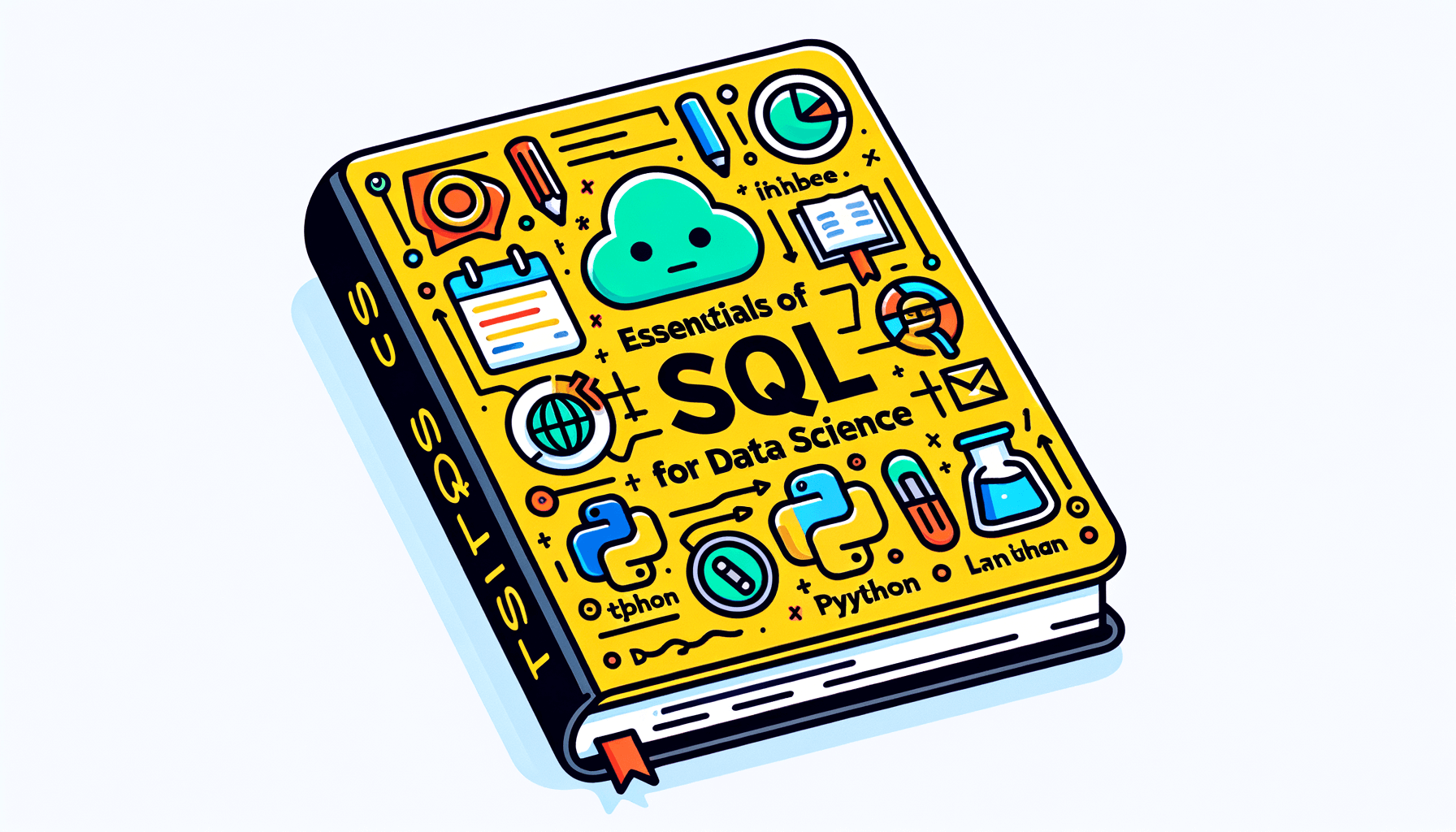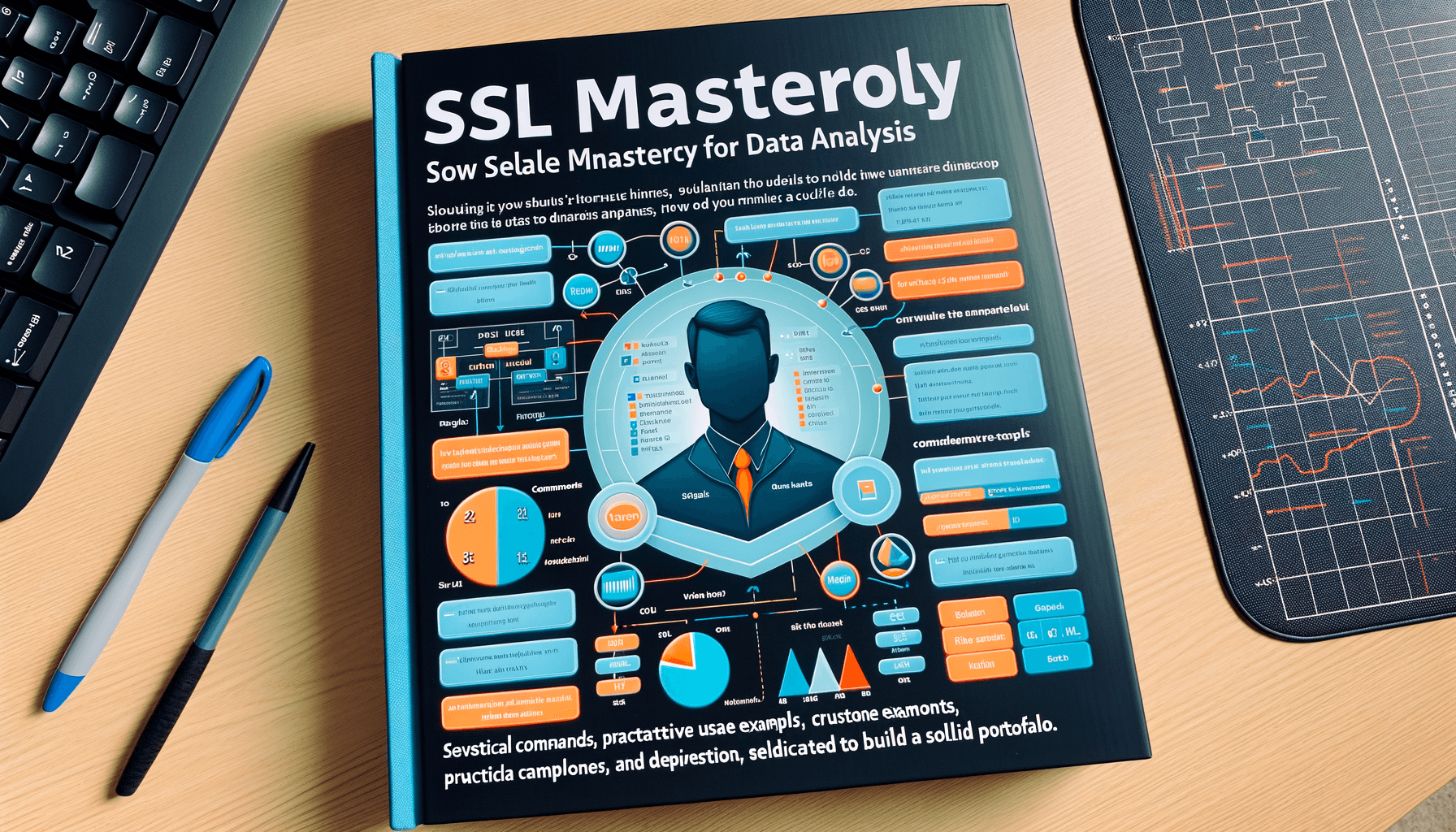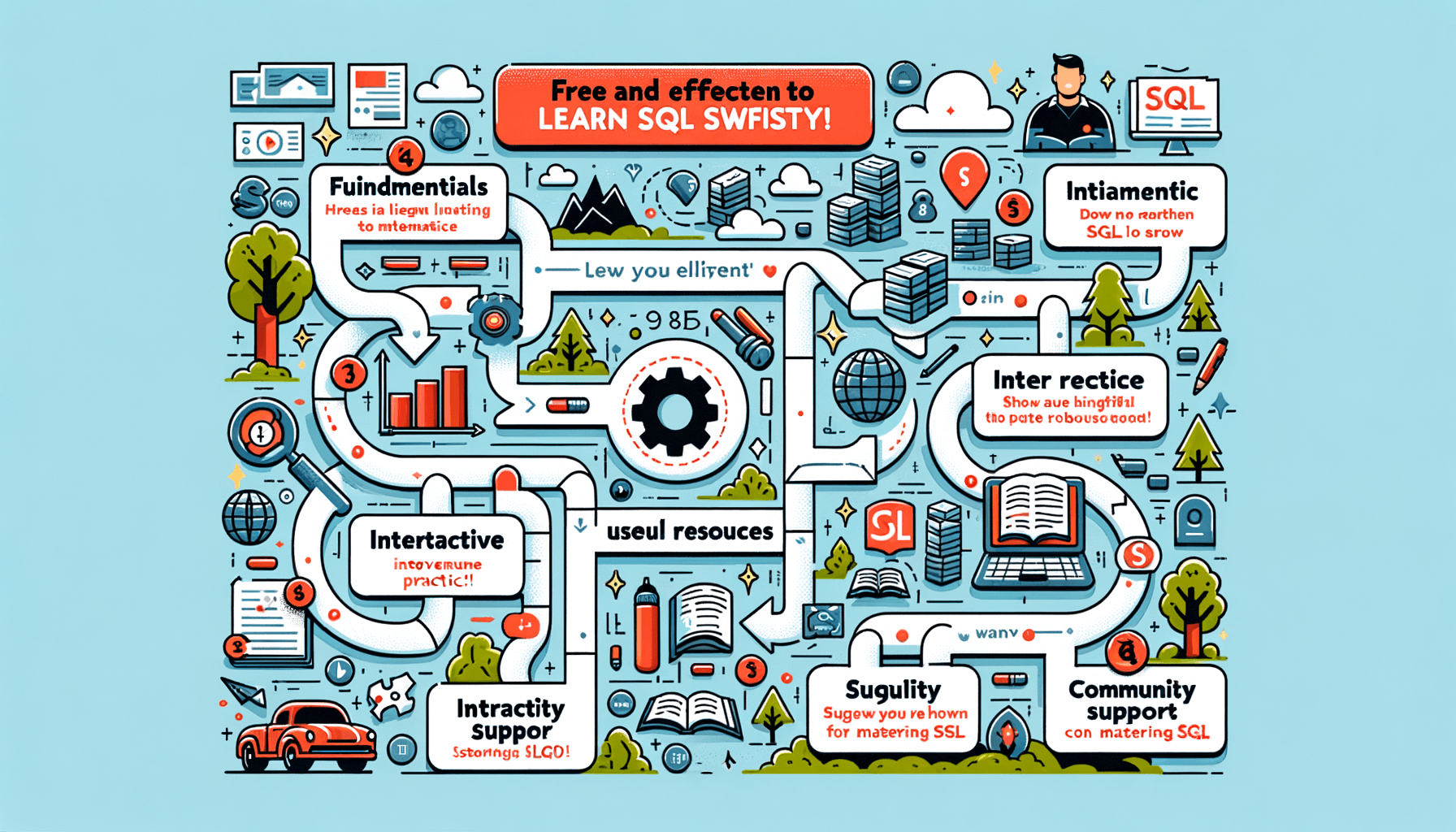A big variety of articles and resources

Integrating SQL and Data Science: A Beginner's Guide to Learning Both
 Sia Author and Instructor
Learn SQL
Sia Author and Instructor
Learn SQL
8 minute read
Understanding the Basics of SQL for Data Science
Why SQL is Essential for Data Scientists
SQL is extremely important for data science as it allows you to work with structured data stored in databases. SQL skills are crucial for extracting, manipulating, and analyzing data, which are fundamental tasks in data analysis and reporting.
Key SQL Skills Every Data Scientist Should Master
Every aspiring data scientist must master certain SQL skills to effectively handle data-related tasks. These include querying, joining tables, filtering, and aggregating data. Combining SQL with Python enhances the ability to manage and analyze data without switching between languages.
Integrating SQL with Python for Data Analysis
Integrating SQL with Python makes data management and analysis more convenient. This combination allows data scientists to leverage the strengths of both SQL and Python, making it easier to handle complex data analysis tasks directly within Python environments.
Building Your First Data Science Project with SQL
Designing Effective Data Queries
To kickstart your data science project, designing effective data queries is crucial. Ensure your queries are precise and tailored to the specific data insights you seek. This involves selecting the right fields, using appropriate filters, and understanding the data structure.
Manipulating and Cleaning Data
Data rarely comes in a clean, ready-to-analyze format. It's essential to manipulate and clean your data to make it suitable for analysis. Techniques such as removing duplicates, handling missing values, and normalizing data are fundamental. Use Python libraries like pandas for efficient data manipulation.
Analyzing Data to Extract Insights
Once your data is prepped, the next step is to analyze it to extract meaningful insights. This involves applying statistical methods, creating visualizations, and interpreting the results. Consider using SQL aggregations and Python's data visualization libraries to enhance your analysis.
Advanced SQL Techniques for Data Science
Using Joins and Subqueries
Joins and subqueries are fundamental in SQL for combining and querying data from multiple tables. Mastering these techniques is essential for effective data analysis. Joins allow you to merge data based on common attributes, while subqueries can filter or manipulate data before a main query processes it.
Optimizing SQL Queries for Performance
Performance optimization is crucial for handling large datasets efficiently. Techniques such as indexing, query refactoring, and using execution plans can significantly improve query speed and system response times.
Implementing Aggregations and Groupings
Aggregations and groupings are powerful for summarizing data, enabling data scientists to extract meaningful insights from large datasets. Common functions include SUM, COUNT, AVG, MAX, and MIN. Structured data analysis often involves complex groupings to observe trends and patterns over various segments.
Learning Resources and Tools to Learn SQL and Data Science Together
Best Books and Online Courses
To kickstart your journey in SQL and data science, consider enrolling in structured online courses or reading comprehensive books. Courses like 'Data Analyst - Introduction to SQL' offer beginner-friendly SQL skills for data analysis, including videos, challenges, and real-world problems. This course is particularly suitable for aspiring data scientists.
Practical Tips for Self-Learning
Self-learning can be highly effective with the right approach. Start by setting clear goals and a timeline. Use online resources to practice regularly and apply your skills on real datasets. Engage in forums and community discussions to enhance your learning experience.
Community and Forum Engagement
Engaging with communities and forums is crucial for practical learning and networking. Platforms like Stack Overflow and GitHub provide opportunities to solve real-world problems and collaborate with other learners. This interaction not only boosts your learning curve but also helps in staying updated with the latest industry trends.
Real-World Applications of SQL in Data Science
Case Studies of Successful Data Projects
SQL's role in successful data projects is undeniable. By examining various case studies, we see how SQL has been instrumental in managing and analyzing data across different industries. SQL's ability to handle large datasets efficiently makes it a preferred choice for data scientists aiming to derive meaningful insights.
SQL in Big Data Environments
In big data environments, SQL is used to process vast amounts of data. The integration of SQL with big data tools like Hadoop and Spark enhances data processing capabilities. This synergy allows for more sophisticated data analysis and better decision-making.
Integrating SQL with Machine Learning Algorithms
The integration of SQL with machine learning algorithms facilitates the creation of more accurate and dynamic models. SQL is used to preprocess and clean data, which is crucial for training effective machine learning models. The use of SQL in this context underscores its importance in the data science workflow.
Challenges and Solutions When Combining SQL and Data Science
Common Pitfalls and How to Avoid Them
In the journey of integrating SQL with data science, several common pitfalls can occur, such as inefficient query designs or misunderstanding the data schema. Avoiding these pitfalls is crucial for maintaining the integrity and performance of data science projects. It's essential to thoroughly understand the data and its structure, and to continuously refine SQL queries for better performance.
Performance Tuning SQL Queries in Data Science
Performance tuning of SQL queries is vital in data science to handle large datasets efficiently. Techniques such as indexing, query optimization, and using appropriate joins can significantly enhance query performance. Here’s a simple guide to get started:
- Analyze the query execution plan.
- Use indexes wisely.
- Optimize the SQL code.
- Choose the right join type for your data needs.
Ensuring Data Accuracy and Integrity
Data accuracy and integrity are paramount in data science. Ensuring that the data used in analyses is correct and reliable involves rigorous data validation and cleaning processes. Blockquote: > Rigorous testing and validation of SQL queries ensure that the data retrieved is accurate and the insights derived are reliable. This step is often overlooked but is critical for successful data science outcomes.
Next Steps After Mastering SQL for Data Science
After gaining proficiency in SQL for data science, it's crucial to consider how to further enhance your skills and knowledge to stay competitive and effective in the field.
Exploring Further Data Science Skills
Broaden your expertise by diving into advanced areas such as machine learning, deep learning, and artificial intelligence. These skills complement SQL knowledge and can significantly enhance your data analysis capabilities.
Advanced Projects and Research Opportunities
Engage in more complex projects or collaborate on research initiatives that push the boundaries of what can be achieved with data science and SQL. This will not only improve your skills but also expand your professional network.
Continuing Education and Certification Options
Consider pursuing further education through specialized courses or obtaining certifications in advanced data science techniques. This continuous learning approach ensures you remain at the forefront of the industry.
Conclusion
In conclusion, integrating SQL with data science is an essential skill for any aspiring data scientist. SQL provides the tools necessary to efficiently extract, manipulate, and analyze data from databases, which is crucial for generating actionable insights. This guide has provided a foundational understanding of both SQL and data science, equipping beginners with the knowledge to start their journey in this dynamic field. By continuing to build on these basics and applying them to real-world datasets, learners can enhance their skills and contribute significantly to their organizations or research projects. Remember, the key to mastery is consistent practice and continuous learning.
Frequently Asked Questions
Why is SQL essential for data scientists?
SQL is crucial for data scientists because it allows them to work efficiently with structured data stored in databases, enabling them to extract, manipulate, and analyze data necessary for deriving insights and making data-driven decisions.
What are some key SQL skills every data scientist should master?
Data scientists should master SQL skills such as querying, joining tables, filtering data, aggregating data, and using subqueries to efficiently handle and analyze large datasets.
How can SQL be integrated with Python for data analysis?
SQL can be integrated with Python through libraries such as SQLAlchemy or pandas, allowing data scientists to run SQL queries directly from Python scripts and manipulate the results with Python for further analysis or visualization.
What are the best resources for learning SQL and data science together?
The best resources for learning SQL and data science are comprehensive online courses, books that focus on practical applications, and tutorials that combine SQL training with data science concepts.
Can you give examples of real-world applications of SQL in data science?
Real-world applications of SQL in data science include analyzing customer data for business insights, managing and querying large datasets in healthcare for pattern recognition, and integrating SQL with machine learning algorithms for predictive modeling.
What are common challenges when combining SQL and data science and how can they be addressed?
Common challenges include handling large volumes of data, optimizing query performance, and maintaining data integrity. These can be addressed by using advanced SQL techniques, learning performance tuning, and ensuring rigorous testing of data processes.
Related Articles

10 Effective Tips on How to Learn SQL Online
9 minute read

A Comprehensive Guide to Learn SQL for Analysts
8 minute read


